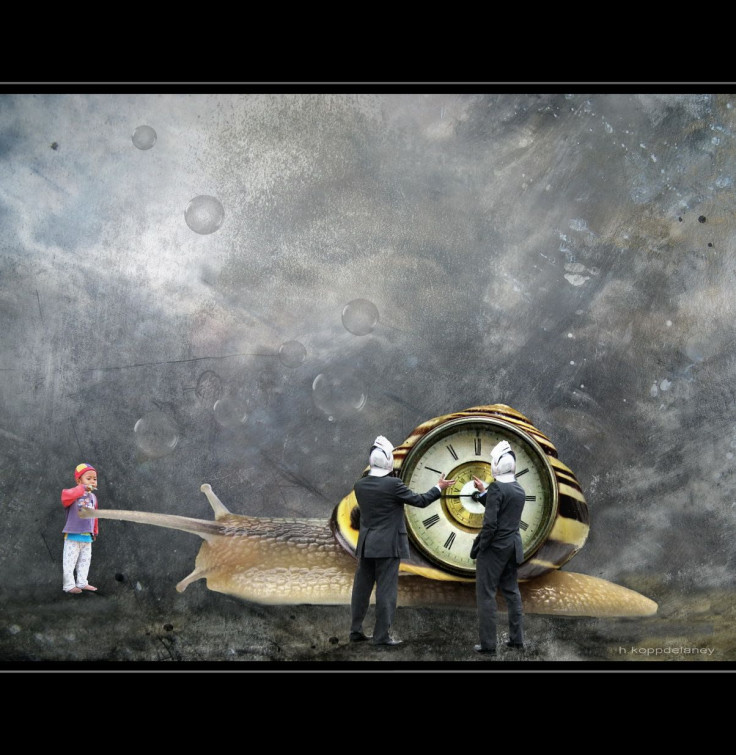Depression Slows Perception Of Time, But Keeps Ability To Assess How Many Minutes Pass

How does time flow through your life? At a constant pace or does it seem to creep through some experiences while speeding through others? A team of psychologists at Johannes Gutenberg University Mainz analyzed studies of time perception and discovered depressed people do feel time passes more slowly, yet their estimates when judging the duration of a specific interval (such as two seconds or two minutes) are just as accurate as those of healthy people.
"I've been interested in time perception and rhythm perception for many years," Dr. Daniel Oberfeld-Twistel, a professor of Psychology and co-author of the study, told Medical Daily when asked about his inspiration. "In several contexts, we are studying whether basic perceptual processes are altered in persons with psychological disorders."
The ancient Greeks had not one but two separate words for time: chronos and kairos. Chronos describes what they thought of as regular time, while kairos describes those moments when time opens and slows, when a single second performs a pirouette and the digital clocks fade from sight so that some event or circumstance is enabled to take on great significance to us. We travel beyond the borders established by the ticking clocks and enter the eternal during kairos. It’s where our spirits fly.
Perception Differences
While philosophers might see slowing time as the root of enlightenment or joy, the depressed often suggest that such lingering time is their everyday milieu, a burden they must bear with whatever dignity they can muster. So what is the truth — do depressed people pass through time more slowly than healthy people? For the current study, two researchers analyzed past research comparing the performance of depressed people and non-depressed people who were tasked with completing four separate time tasks: verbal time estimation, time production, time reproduction, and duration discrimination.
Searching the scientific literature, the researchers found 16 studies on time perception in depression, which included data from 433 depressive patients and 485 healthy control volunteers. After evaluation and analysis, the researchers discovered that, compared to healthy people, depressive people subjectively perceive time as going by less quickly. Yet, when judging actual interval durations — Did the video last five minutes or four minutes? How long did the bell tone last? — the depressed patients performed equally well as healthy volunteers.
Noting that the effects of medication, such as anti-depressants, have not yet been investigated in sufficient detail, the researchers concede their study has limitations. "We are considering additional experiments on this issue, and hope that our meta-analysis will inspire other researchers to study the issues we pointed out," Oberfeld-Twistel told Medical Daily. Their current discovery, however, remains strong: A depressed person's subjective feeling of the passage of time differs from the ability to assess the actual duration of external events. The individual components of time, then, may be experienced differently by someone who suffers a mood disorder.
Asked which comes first — the perception of a slower pace of time or depressed feelings — Oberfeld-Twistel said, "I don't think anyone has a definitive answer at the moment." No matter, his work suggests a kind of negative kairos exists for those who suffer a mood disorder. If only we could make each lingering moment entirely beautiful, all might be cured.
Source: Thönes S, Oberfeld D. Time perception in depression: A meta-analysis. Journal of Affective Disorders. 2015.
Published by Medicaldaily.com



























